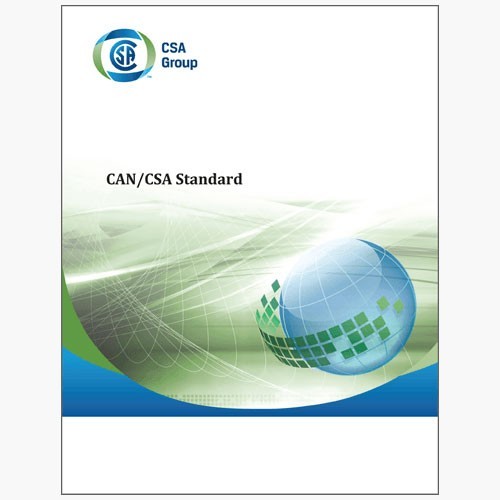TOLL FREE · 1-888-361-0003 Our Customer Support is ready to help!

Formats Available:
Online,
Print
Product Overview
CAN/CSA-ISO/IEC 8802-5-02 (R2011)
CSA Group Information Technology - Telecommunications and Information Exchange Between Systems - Local and Metropolitan Area Networks - Specific Requirements - Part 5: Token Ring Access Method and Physical Layer Specifications (Adopted ISO/IEC 8802-5:1998 / ANSI/IE
Total
As low as
$348.00
More About This Product
Description
Scope For the purpose of compatible interconnection of data processing equipment via a local area network(LAN) using the token ring access method, this part of ISO/IEC 8802 a) Provides a general description of the token ring local area network (LAN) architecture (clause 2); b) Defines the frame format, including the delimiters, address fields, information field, and frame-check sequence (FCS). Defines the Medium Access Control (MAC) frames, timers, and error counters (clause 3); c) Defines the MAC protocols including finite state machines and state tables (clause 4); d) Defines the system level Physical layer (PHY) signaling specifications that are specific to a ring station (clause 5); e) Defines the managed objects necessary to manage the service and protocol elements that are involved in the management of a token ring station (clause 6); f) Defines the PHY station attachment specification for 4 and 16 Mbit/s operation. This includes the transmitter, receiver, medium interface connector, and transmission channel for both shieldedtwisted pair (STP) and unshielded twisted pair (UTP) media (clause 7); g) Defines the concentrator, incorporating multiple trunk coupling units (TCUs), for the attachment of a group of stations to the ring (clause 8); h) Includes the protocol implementation conformance statement (PICS) proforma in compliance with the relevant requirements, and in accordance with the relevant guidance, given in ISO/IEC 9646-2 : 1994. (annex A); i) Includes channel design examples and formulas for calculating cabling and concentrator system configurations (annex B); j) Describes jitter components and provides an example of jitter buildup using a phase lock loop recovery circuit (annex C); k) Provides informative transmitter filter design example (annex D); l) Provides recommended guidelines for safety and operating environments (annex E); m) Illustrates the MAC finite state machines in a notation similar to that used in lSO/IEC 8802-5 : 1992 (annex F); n) Describes major improvements made after the first edition of the standard (annex G); o) Provides a sample algorithm for the parsing of MAC frames (annex H); p) Provides recommendations for the use of token ring access priorities to support multimedia traffic (annex I); q) Provides bit error rate (BER) criteria for lobe media testing (annex P).
Scope For the purpose of compatible interconnection of data processing equipment via a local area network(LAN) using the token ring access method, this part of ISO/IEC 8802 a) Provides a general description of the token ring local area network (LAN) architecture (clause 2); b) Defines the frame format, including the delimiters, address fields, information field, and frame-check sequence (FCS). Defines the Medium Access Control (MAC) frames, timers, and error counters (clause 3); c) Defines the MAC protocols including finite state machines and state tables (clause 4); d) Defines the system level Physical layer (PHY) signaling specifications that are specific to a ring station (clause 5); e) Defines the managed objects necessary to manage the service and protocol elements that are involved in the management of a token ring station (clause 6); f) Defines the PHY station attachment specification for 4 and 16 Mbit/s operation. This includes the transmitter, receiver, medium interface connector, and transmission channel for both shieldedtwisted pair (STP) and unshielded twisted pair (UTP) media (clause 7); g) Defines the concentrator, incorporating multiple trunk coupling units (TCUs), for the attachment of a group of stations to the ring (clause 8); h) Includes the protocol implementation conformance statement (PICS) proforma in compliance with the relevant requirements, and in accordance with the relevant guidance, given in ISO/IEC 9646-2 : 1994. (annex A); i) Includes channel design examples and formulas for calculating cabling and concentrator system configurations (annex B); j) Describes jitter components and provides an example of jitter buildup using a phase lock loop recovery circuit (annex C); k) Provides informative transmitter filter design example (annex D); l) Provides recommended guidelines for safety and operating environments (annex E); m) Illustrates the MAC finite state machines in a notation similar to that used in lSO/IEC 8802-5 : 1992 (annex F); n) Describes major improvements made after the first edition of the standard (annex G); o) Provides a sample algorithm for the parsing of MAC frames (annex H); p) Provides recommendations for the use of token ring access priorities to support multimedia traffic (annex I); q) Provides bit error rate (BER) criteria for lobe media testing (annex P).
